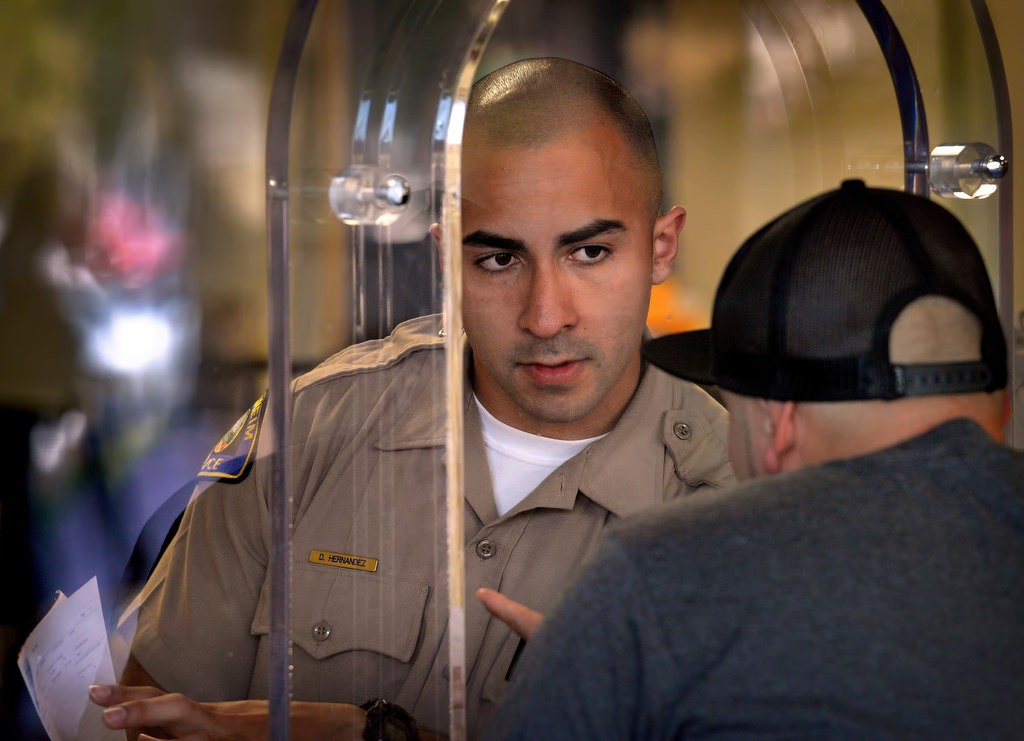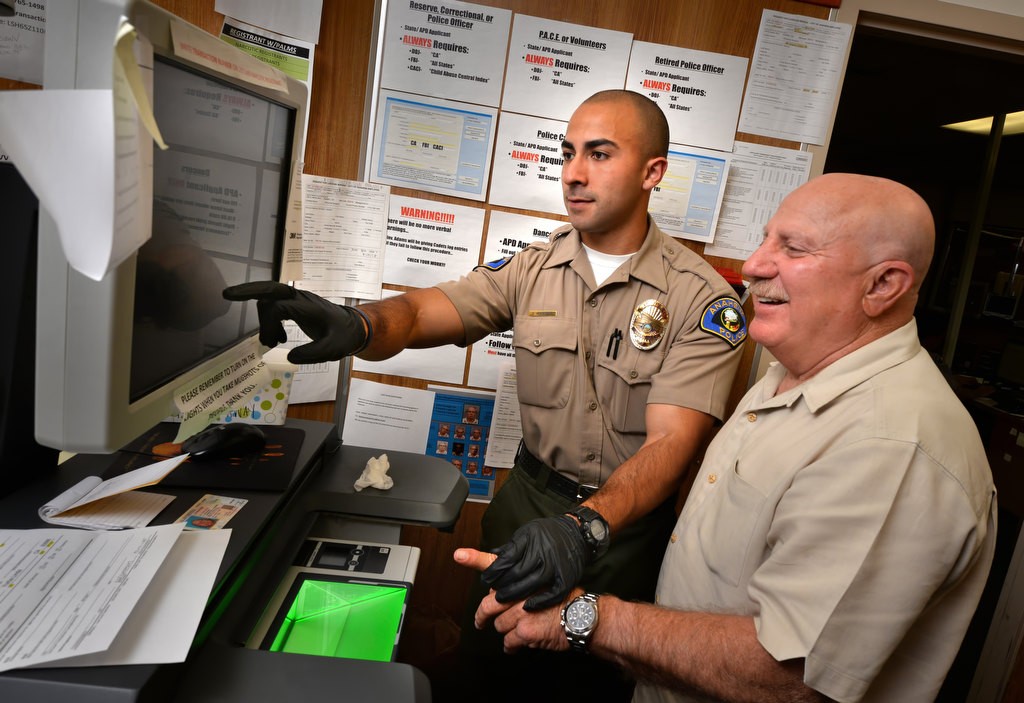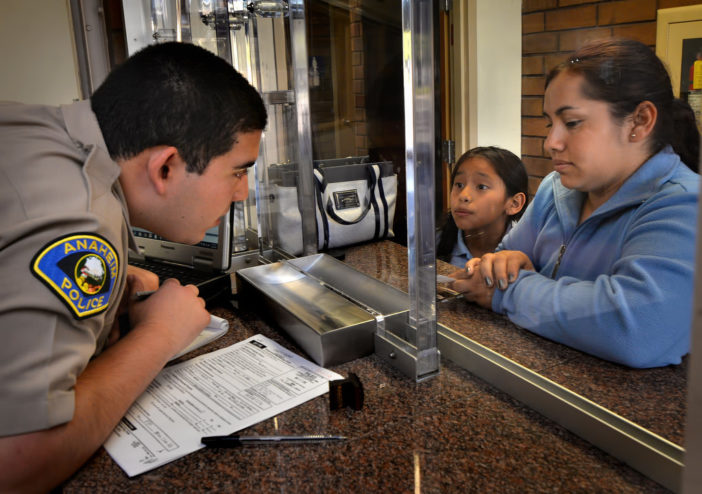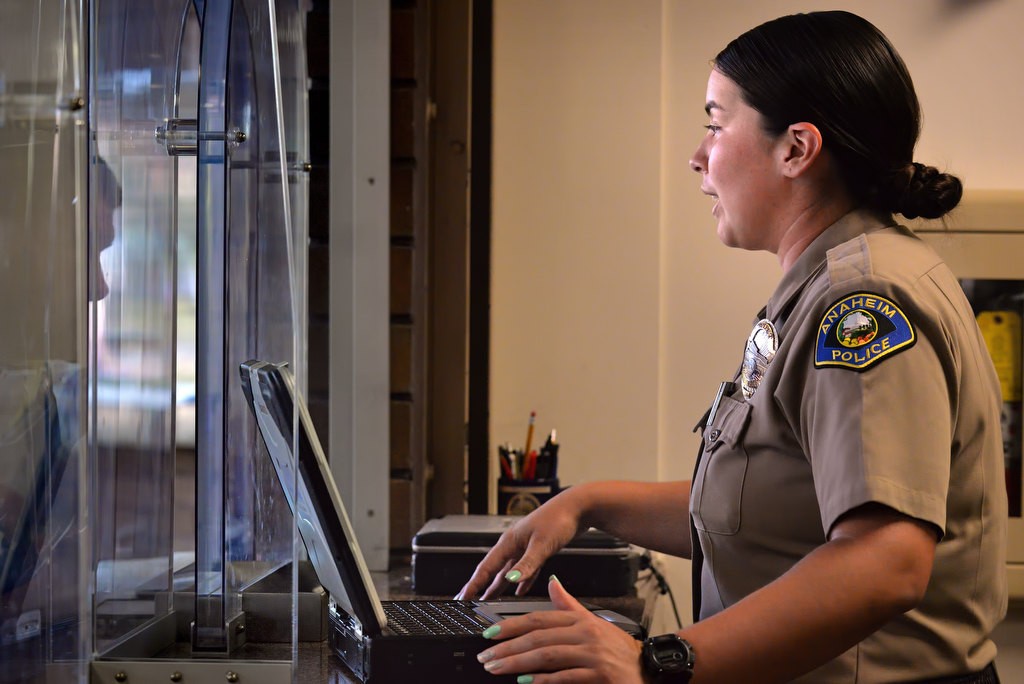There are many reasons members of the public visit the Anaheim Police Department’s front counter: to report a crime, request a vehicle release, file a restraining order.
And for most people walking into the station, the first face they’ll see at the counter is that of a cadet.
“For most people, cadets are who they interact with when they come to the police department,” says APD Sgt. Ray Drabek, who heads up the agency’s Cadet Program.
Currently hosting 35 cadets, whose ages generally range from 18 to 25, APD’s cadet program is a real-world training experience for college students interested in a career in law enforcement. At the same time, the program gives the agency the opportunity to find the right match for potential future hires while also getting some extra help for tasks performed throughout the department that do not require sworn police officers.

Anaheim PD Cadet David Hernandez helps a man at the front counter of police headquarters.
Photo by Steven Georges/Behind the Badge OC
“They’re doing real police work on a civilian level,” says Drabek. “They’re filling a vital role in the department.”
Reporting to a supervisor in the detail in which they are placed, cadets work throughout the agency, including records, dispatch, forensics, homicide, burglary, gang investigations, the Orange County Family Justice Center, Cops 4 Kids and other youth services programs, including Jr. Cadets.
“As they develop, they learn how to train because they provide on-the-job training for other cadets,” says Drabek.
The agency has three to four major cadet recruitments a year, including the next one running May 26 through June 16 through the Anaheim city website under Careers. Applicants must be 18 years of age, have a high school diploma, a California driver’s license and must be enrolled in college and taking at least six units at the time employment is offered.

Anaheim PD Cadet Jiwon Kim helps with administrative computer work at the front desk at PD headquarters.
Photo by Steven Georges/Behind the Badge OC
“We want a minimum of six college credits. Most cadets work a minimum of 20 hours a week,” says Drabek, adding that the APD wants educated cadets so they can consider them for future hire. “We know when our cadets graduatefrom college, they will apply for a law enforcement job with Anaheim or another agency.”
Cadet applicants are fully vetted over a four- to six-month process. It begins with a written, multiple-choice test, followed by a written autobiography. If the applicant passes, he or she proceeds to an oral interview in front of a panel of officers, sergeants and investigators who test the applicant’s job and city knowledge.
“They’re sitting down in front of a highly qualified group of people who can determine who can do the job and who can’t,” Drabek says.
If the cadet applicant passes the oral interview, then there’s an extensive background search performed, which includes a polygraph test.
“We’re looking for the most qualified people,” he says. “We’re really looking for the cream of the crop…and we find them.”
Once the applicant is hired as a cadet, he or she is assigned to a detail and starts receiving a salary. As supervisors get to know the cadet, they further fine tune his or her placement.
“They’re doing very, very necessary tasks and they’re providing a great service to the community,” says Drabek.

Anaheim PD Cadet David Hernandez takes the fingerprints of Marshall Hovivian of Yorba Linda in order for Hovivian to obtain a concealed weapons permit. The electronic fingerprint system allows for digital storage and analyzing of the fingerprints without leaving ink on the participant’s fingers.
Photo by Steven Georges/Behind the Badge OC
 Behind the Badge
Behind the Badge




